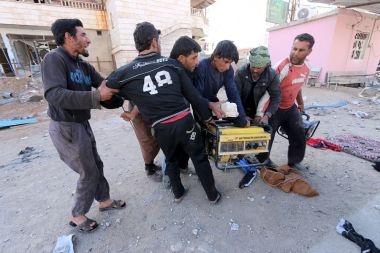Massive power outage hits Syria after rocket attack despite ceasefire agreement

A massive power outage hit Syria on Thursday following a rocket attack that took place despite a ceasefire agreement between the regime of Syrian President Bashar al-Assad and rebel forces.
The Syrian government was earlier cited as saying that power had been cut in all provinces and that teams were trying to determine the cause. TV reports later announced that power was being restored.
Internet services that went down in an unrelated outage have already been restored, according to local media, WND reported.
Officials had said that a well-placed rocket attack in the western Syrian city of Hama was responsible for knocking out all power across the war-torn country.
The massive blackout was later accompanied by an outage that took down Internet services across Syria.
The crisis in electrical grid comes just days after an alleged two-week truce between the Assad regime and various Islamic groups.
"We have said that we are ready to stop military operations, but the issue relates to more important factors ... such as preventing terrorists from using it to improve their positions," Assad told Spanish newspaper El Pais in a recent interview, Reuters reported.
Meanwhile, U.N.'s special envoy Staffan de Mistura said despite incidents in the provinces of Homs, Hama, Latakia and Damascus, violence in Syria had been gradually reduced, BBC reported.
He noted that while success is not guaranteed, "progress is visible.''
Both the opposition and the government have accused each other of violating the cessation of hostilities agreement brokered by the U.S. and Russia, which does not include the extremist groups Islamic State (ISIS) and al-Nusra Front, reports said.
Mistura said he planned to reconvene talks aimed at ending the five-year conflict in Syria this Wednesday.
Progress has likewise been made in getting aid to besieged areas of Syria, said U.N. humanitarian adviser Jan Egeland.
He said it is likely that there would be further attempts to air-drop aid over the eastern city of Deir al-Zour, where 200,000 people are surrounded by ISIS militants, within days or weeks.
Roughly 250,000 people have died during Syria's civil war, which has also contributed to Europe's refugee crisis and the rise of the ISIS.











